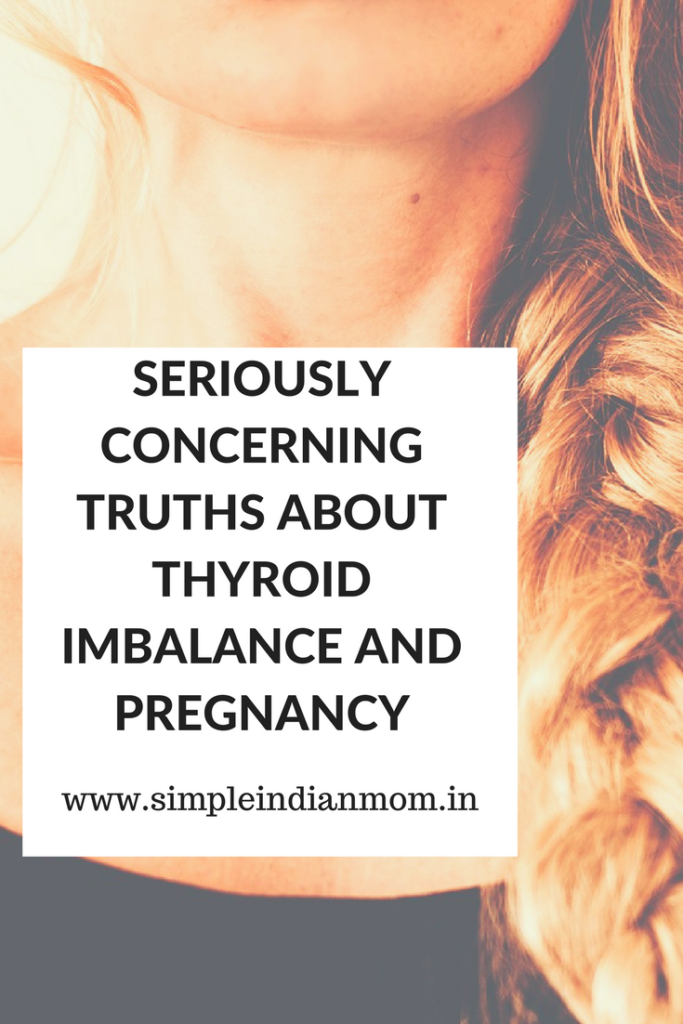Blog
Seriously Concerning Truths About Thyroid Imbalance And Pregnancy

SERIOUSLY CONCERNING TRUTHS ABOUT THYROID IMBALANCE AND PREGNANCY
Thyroid hormone plays a critical role during pregnancy both in the development of a healthy baby and in maintaining your own health. Though it does not commonly develop an issue but thyroid imbalance or dysfunction affects two to three percent of pregnant women. So timely detection and treatment is important for you and your baby’s health and development.
Thyroid disease is a common among pregnant women and its frequency varies among different populations and different countries. During pregnancy the thyroid has an impact on hormones and size which indirectly has a profound impact on the thyroid gland and thyroid function.
We know pregnancy is a phase when there are so many hormonal changes occurring within the body of the mother and having a balance in thyroid function is thus very important.
Thyroid Imbalance During Pregnancy
The thyroid is a gland that releases hormones which regulates your metabolism, heart and nervous system.
You can learn more about what thyroid hormone is and how it works here
The issue with respect to with thyroid imbalance during pregnancy is so much common to pregnancy symptoms such as fatigue, constipation and heat intolerance that you would just not recognise it.
Off late it has become a common practice in India to have your thyroid checked while planning pregnancy or during the first trimester. This is so crucial because the thyroid hormone is necessary for normal brain development of the baby.
Babies get their thyroid hormone from their mothers in early pregnancy but as the embryo develops, it makes its own thyroid hormone.
There should be an adequate amount of iodine to produce fetal and maternal thyroid hormone. Oh! Did I tell you about excess iodine in salts, lets discuss that later.
Pregnancy and Thyroid Gland
For normal development of the baby’s brain and nervous system thyroid hormone is critical as during the first trimester, the fetus depends on the mother’s supply of thyroid hormone.
From the 12th week, the baby’s thyroid starts functioning on its own. For some women the thyroid enlarges slightly which does not get detected in the physical examination.
However noticeable thyroid enlargement is evident and can be a sign of thyroid disease and should be evaluated.
Human chorionic gonadotropin (hCG) and estrogen are the two pregnancy related hormones which cause increase thyroid hormone levels in the blood.
HCG is similar to thyroid-stimulating hormone (TSH) which stimulates the thyroid to produce more thyroid hormone whereas on the other hand increased estrogen produces higher levels of thyroid binding globulin a protein which transports thyroid hormone in the blood.
All these can make the thyroid function tests during pregnancy difficult to interpret.
What Causes Hypothyroidism In Pregnancy?
Hypothyroidism, a less secretion of thyroid hormone in pregnancy is more related to autoimmune and the exact cause is not clear. The immune system attacks the thyroid, causing inflammation and blocks its ability to produce thyroid hormones.
It is more related to the iodine content in food. However the recent times where in India salt is iodised, we see more of these thyroid hormone imbalance than earlier times. It is strongly suggested that you revert back to taking rock salt – uniodinised and pure.
Some genetic reasons are also quoted to be the reason.
Some mild changes during pregnancy in thyroid hormone is found to be common in most pregnant women, so you do not have to panic, it may just get back to normal with time.
How Does Hypothyroidism Affect The Mother And Baby ?
As said earlier, mild changes in thyroid hormone secretion is not serious however when there is acute and sudden imbalance, there is a lot to worry about.
Uncontrolled hypothyroidism during pregnancy can lead to
- Preeclampsia
- Anemia
- Miscarriage
- Low birth weight
- Stillbirth
- Congestive heart failure, rarely
Thus thyroid hormones are crucial to fetal brain and nervous system development especially during the first trimester. This would affect the baby’s growth and brain development
However if you are a mindful person and stay mindful through your pregnancy you just would not have to worry about hypothyroidism during pregnancy.
How is Hypothyroidism During Pregnancy Diagnosed?
After a careful review of symptoms and measurement of TSH and T4(thyroxine) levels in your blood sample – hypothyroidism is diagnosed.
Some of the systems of hypothyroidism in pregnancy include
- Extreme fatigue
- Sudden Weight gain
- Cold intolerance
- Muscle cramps
- Constipation and
- Problems with memory or concentration.
Hypothyroidism indicate high levels of TSH and low levels of free T4. Thus the test result must be interpreted with caution as these are because of normal pregnancy-related changes in thyroid function.
If hypothyroidism is discovered during pregnancy, treatment is recommended to help ensure a healthy pregnancy.
Read How Hypothyroidism is treated


